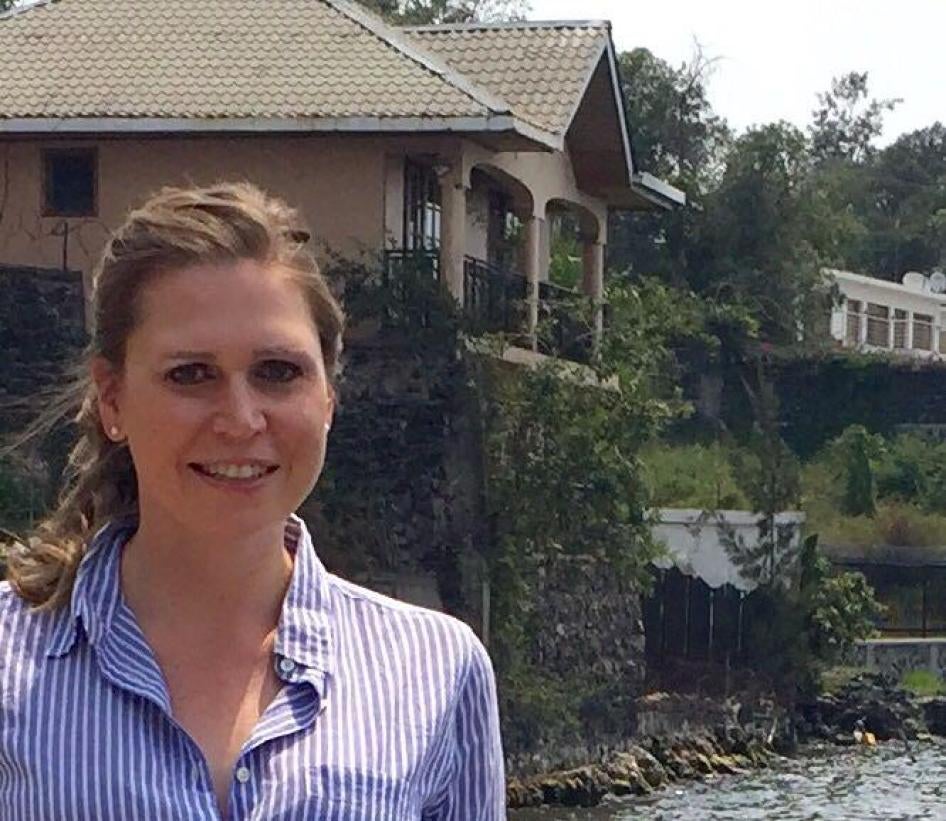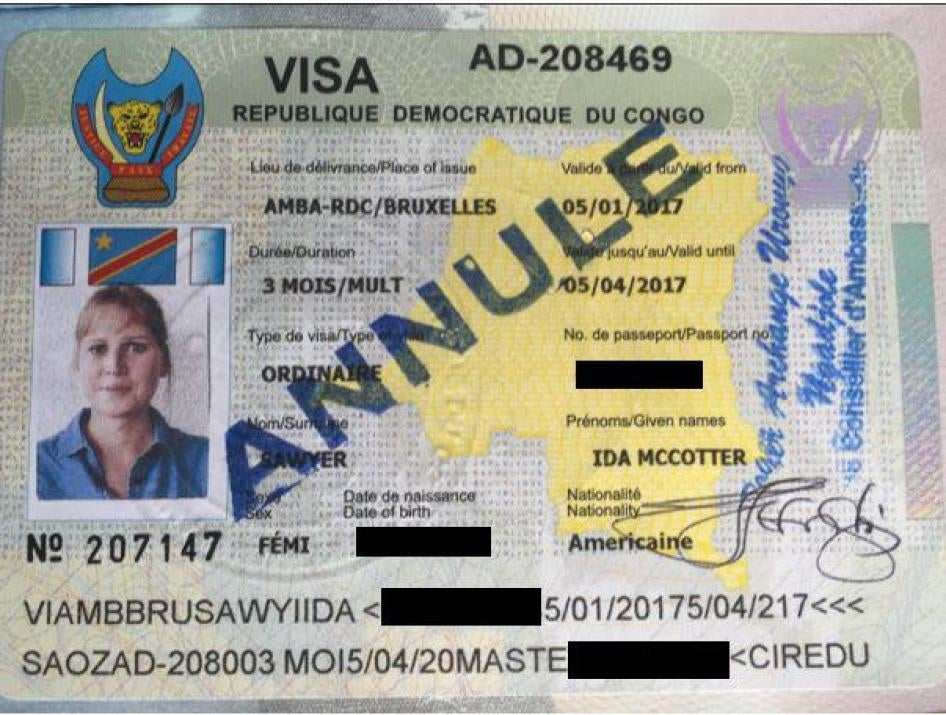(New York) – Ida Sawyer, Central Africa director at Human Rights Watch, was obliged to leave the Democratic Republic of Congo on January 20, 2017, Human Rights Watch said today. Immigration authorities in the eastern city of Goma annulled her visa and escorted her to the border.
Sawyer entered Congo on January 13, on a three-month multiple entry visa that she had obtained on January 5, at the Congolese embassy in Brussels, Belgium. Sawyer has been based in Brussels since August 2016, when Congolese officials revoked and then refused to renew her work permit and told her to leave the country. Sawyer had previously been living and working in Congo with Human Rights Watch since January 2008.
“Providing Ida Sawyer a visa one day and revoking it 15 days later calls into question the Congolese government’s commitment to reversing the climate of repression in the country,” said Kenneth Roth, executive director of Human Rights Watch. “We hope the situation will be resolved quickly and that Sawyer will soon be allowed to return to Congo to carry out her work without interference.”
On January 19, Communications Minister Lambert Mende told a Congolese media outlet that Sawyer was “not authorized” to travel in Congo and that she was “still undesirable.” On January 20, immigration officials in Goma informed Sawyer that she had been designated a “special case” and required written authorization from the director general of immigration services (DGM) before applying for a visa. Sawyer had not been informed of this “special” procedure when she applied for a visa or when she entered the country. The officials then annulled Sawyer’s visa and escorted her to the border with neighboring Rwanda. Just before crossing the border, immigration officials gave Sawyer a document saying the conditions for obtaining the visa had not been fulfilled. Sawyer did not sign the document, given that all normal procedures were followed when she obtained her visa and entered the country. Human Rights Watch’s lawyer in Congo submitted a letter to the director general of immigration services on January 21, asking for Sawyer to be allowed to return to Congo.
Other senior officials, however, had previously informed Sawyer privately that she had been allowed back in Congo as part of the government’s efforts to ease political tensions following an agreement mediated by the Catholic Church was signed on New Year’s Eve by members of the opposition, the ruling coalition, and civil society groups.
The deal followed two years of heightened political tensions and brutal repression against human rights and pro-democracy activists, the political opposition, the media, and peaceful protesters as President Joseph Kabila sought to extend his stay in power beyond the end of his constitutionally mandated two-term limit on December 19. The New Year’s Eve agreement says that presidential elections will be held before the end of 2017.
Under the agreement, a new prime minister will be named from the opposition’s Rassemblement coalition, and the opposition will lead a national follow-up committee for the transition. The agreement says that there will be no attempts to change the constitution, organize a referendum, or to allow Kabila to run for a third term. The agreement also calls for the implementation of a number of confidence-building measures, including the release of political prisoners and the opening of barred media outlets.









